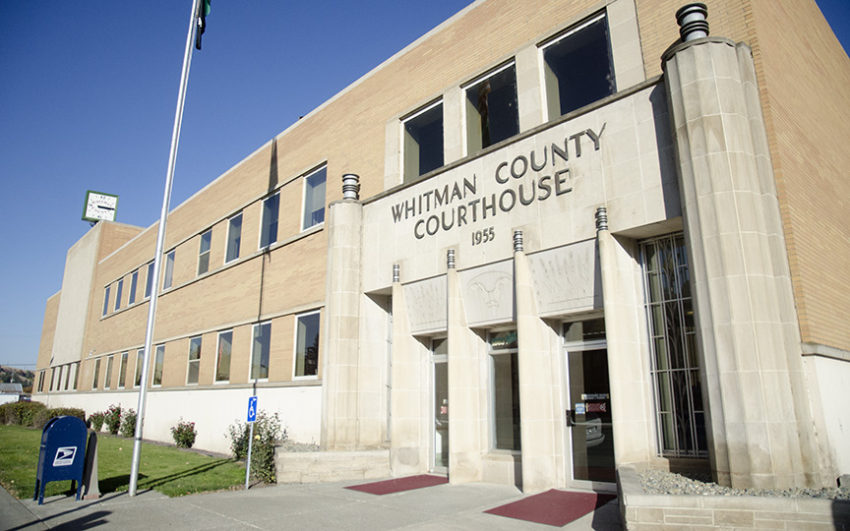State auditors recently identified shortcomings in Whitman County government credit and fuel card records during a review of 2017 accountability practices, noting 40 percent of tested credit card purchases lacked adequate documentation.
Auditors did not uncover any practices that amounted to a significant “finding,” but encouraged county officials to strengthen some controls on card security, petty cash receipts and asset inventory. They presented audit results to county commissioners and other officials Monday afternoon.
“We’re happy to report that we didn’t have any findings,” said Molly Mors, an assistant audit manager with the Office of the Washington State Auditor.
The newly completed audit examined cash receipts, card purchases, bidding, bond compliance and other select practices from January through December of 2017. The county has received clean financial audits the past two years (2016/2017) after a decade of significant compliance issues. UPDATE April 8: Final report published here.
The 2017 report also notes “certain matters came to our attention that are currently under investigation.” Auditors did not clarify the nature of those issues.
County Commissioner Art Swannack said he found the new audit report “pretty good” in general and praised the recent work by the county’s finance staff.
“There’s a few things we need to work on,” he said. “I’m sure we can get it done.”
While the accountability audit report lists no findings, auditors outlined the credit card and fuel card concerns in a separate management letter to county officials. The letter states the county had $281,592 in credit card spending and another $490,593 in fuel card spending in 2017.
In a sample test of 132 credit card transactions from April 2017, auditors found 53 purchases did not have sufficient documentation such as itemized receipts. More than 10 percent of purchases also lacked documentation required by county policy.
Auditors could not find any receipts or documentation for 337 fuel card sample purchases — totaling $13,318 — from August 2017. However, a test of the county’s updated fuel purchasing practices from December 2018 found more consistent documentation.
“So that’s been rectified,” Mors said.
Swannack and other officials noted the county has a program that logs fuel purchases, amounts, mileage and other information. But reliable tracking can still be challenging since the county buys fuel in bulk and then disperses to heavy machinery in the field.
Auditors offered to discuss the details of their test results to help pinpoint issues.
A review of the county’s credit and fuel card physical security practices found 35 of 42 cards were not kept in a secure location, the letter states. Some cards were left unattended in vehicles while other seasonal-use cards were issued to multiple individuals.
County Auditor Sandy Jamison mentioned her office has started the process to rewrite the county’s policies on credit card usage and has worked to anticipate any potential problems.
“This is a good discussion to have right now,” she said.
Auditors also provided recommendations for clarifying shared costs for Information Technology services, tracking Parks Department assets and logging cash receipts.
They noted the county had made progress on a 2016 finding on reimbursements to special taxing districts. The county must show full compliance by next year. You can search for other previous audit reports here.
The 2017 accountability audit itself cost $32,500.
Auditors reported Whitman County is expected to undergo three audits in 2019, covering financial statements, federal programs and accountability practices.
Whitman County 2017 Accountability audit management letter, April 1, 2019 by Whitman County Watch on Scribd
